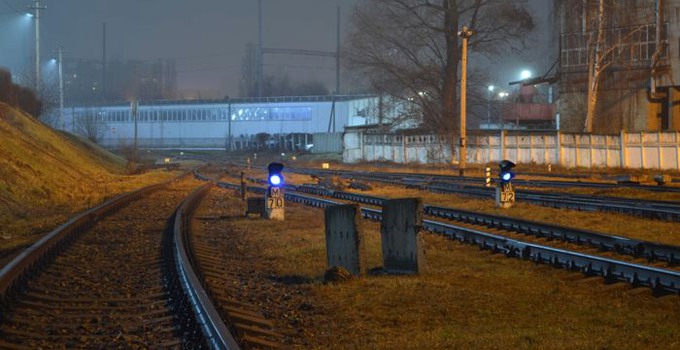
Photo: Unsplash.
Article on Russian military thinking published in Defence Studies
Markus Balázs Göransson, senior lecturer at the Swedish Defence University, has recently had his article "Russia's view on new wars and its full-scale invasion of Ukraine" published in the journal Defence Studies.
Are there intellectual reasons for Russia's weak military effort at the beginning of the full-scale war in Ukraine? Based on a examination of public Russian military and security policy discussions in the years before Russia's full-scale invasion, Markus Balázs Göransson argues that the Russian operational planning for Ukraine was consistent with key assumptions in Russian thinking about new wars.
In the article, Markus Balázs Göransson describes some erroneous assumptions that are particularly notable. These include the Russian leadership's inability to admit that Ukraine could act independently and with initiative, its mistaken belief that non-kinetic means could have a very large effect, and its erroneous assumption that Western states were too timid and risk-averse and would not respond forcefully to Russian aggression. He suggests that this raises questions about the relationship between Russian military theory and Russian military action, and how the prevailing intellectual paradigm shaped the Russian perception of thefeasibility of the invasion plan.

Markus Balázs Göransson.
We asked Markus Balázs Göransson five questions about his work on the article:
Why did you choose to look at this?
"Before the large-scale invasion, Piotr Wawrzeniuk and I (Piotr is an associate professor, senior lecturer and director of studies at the Department of Military History) researched military theoretical discussions in Russian military newspapers and magazines and we wrote a number of articles about this. One thing that was striking in these discussions was that Russian military thinkers often described the warfare of the new era as largely non-kinetic. In prominent Russian military journals, such as Voennaya mysl' and Vestnik Akademii Vojennych Nauk, it was conveyed that the warfare of the new age was largely conducted by non-kinetic means, such as information warfare, popular demonstrations, and other political influence or subversion. Naturally, they also wrote about kinetic violence, not least in the form of long-range combat and operations carried out by well-trained and versatile special operations forces, but there was an interesting emphasis on the non-kinetic in the discussions while downplaying the likelihood of large-scale wars and nuclear wars.
"When the large-scale invasion began, it soon became clear that it lacked a strong basis in reality. A severely undersized conventional force was sent into Ukraine together with special operations units after the Russian security service had conducted a failed attempt to undermine the Ukrainian state apparatus with a network of agents. I thought that the Russian invasion, which appeared headless, became more understandable in the light of the military theoretical discussions that Piotr and I had investigated. So I decided to take a closer look at this.
Why is it important?
"This might help us understand the intellectual assumptions about warfare in certain circles in Russia that perhaps made a detached-from-reality invasion plan appear reasonable and feasible. Yes, perhaps Russian authorities who were influenced by these thoughts even perceived it as necessary..
What have you concluded?
"What I show in the article is that there is a striking correspondence between key elements of what I call the Russian discourse on new wars and the invasion of Ukraine.
Here I am primarily thinking of three elements:
- that the initiative and agency in a conflict rests with foreign superpowers, not with local actors
- that non-kinetic power means are as effective as, or even more effective than, kinetic power means
- that there is an escalation potential in the new wars, but they are largely conducted non-kinetically due to a fear of kinetic escalation.
"In Ukraine, Russian decision-makers assumed that Ukrainian actors lacked agency, that non-kinetic power means would pave the way for a limited kinetic action, and that Ukraine's Western backers would cower before a Russian show of force. Russia was completely wrong on the first two points, and to some extent on the third. I believe this is an important reason for the Russian failure.
"I also hope that the article shows that the discourse on new wars played an important role in the broader Russian security policy discourse. It contributed to the securitization of phenomena that were displeasing to the Kremlin, such as information influence, non-governmental organizations, and various types of discontent expressions. It also allowed for various types of threat perceptions to be brought together in a common discourse. In the 1990s and early 2000s, Russian security policy experts had expressed different views on whether Russia was threatened primarily by domestic and border instability or by an external threat from NATO. The later discourse on hybrid warfare that emerged in the mid-2010s brought together these different types of threat scenarios into a broad security narrative that emphasized that behind the domestic instability and disturbacesin the nearby regions stood a malicious West that also posed a potential kinetic threat. In other words, the Russian discourse on new wars did not emerge out of nothing. It served an important purpose in legitimating Russian security policy and reconciling various threat perceptions..
How can the results be useful?
"Firstly, I think they can contribute to the discussion about why Russia chose to invade Ukraine on a large scale in February 2022. There are of course many reasons for this, but it is also important to understand why Russian decision-makers believed they could win, that is, why they thought the invasion had good prospects of success. There, I believe the Russian discussions on the warfare of the new era are an important part of the explanation.
"Secondly, with the article, I want to emphasize that we should take what is published in Russian military journals more seriously. Scientifically, a lot of what is written in the journals is quite uninteresting – and even outright conspiracy theories – but the fact that Russian thinkers and decision-makers seem to take it seriously means that we need to do it too.
How have you gone about your work?
"In one section of the article, I describe and summarize what I call the Russian discourse on new wars to show how it has evolved and what have been its key elements. Here, I look at articles in Russian military journals and other Russian military publications, but also earlier English-language research on Russian military discussions. I also show how the Russian mindset about new wars has increasingly been embraced by the Russian military leadership, especially the Chief of the General Staff and now the Commander in Chief of Russia's forces in Ukraine, Valery Gerasimov, who seems to have played a significant role in the planning of the large-scale invasion. In another section, I examine how Russian military thinkers and decision-makers described the conflict in Ukraine before 2022 and then describe how the large-scale invasion coincided in key aspects with ideas about the new era of warfare.
Read the article: Russia ́s thinking on new wars and its full-scale invasion of Ukraine
Page information
- Published:
- 2024-09-17
- Last updated:
- 2024-09-17
